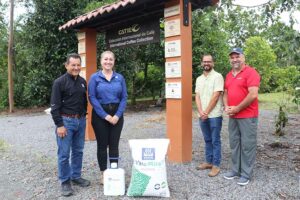Trifinio Youth: Training Opportunity and Seed Capital Open for Ventures in the Dry Corridor
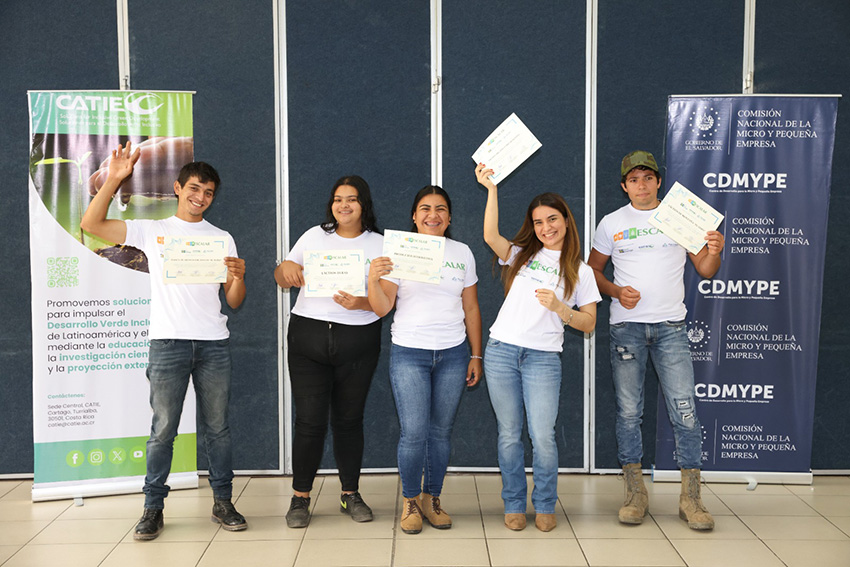
- The ESCALAR project invites you to participate in its 2a call for seed capital, a unique opportunity aimed at boosting innovative and sustainable rural businesses in the face of climate change.
The ESCALAR project is looking for enthusiastic and entrepreneurial young people from the three countries that make up the Trifinio (El Salvador, Guatemala, and Honduras) to form leaders who will develop agribusinesses linked to agricultural innovations for adapting agriculture to climate change.
Within the framework of this project, which is supported by Swedish Cooperation and partnered with the Trinational Commission of the Trifinio Plan, CATIE (Tropical Agricultural Research and Higher Education Center) announces the start of the 2nd Call with Seed Capital for Rural Ventures in the Dry Corridor of the Trifinio on March 26.
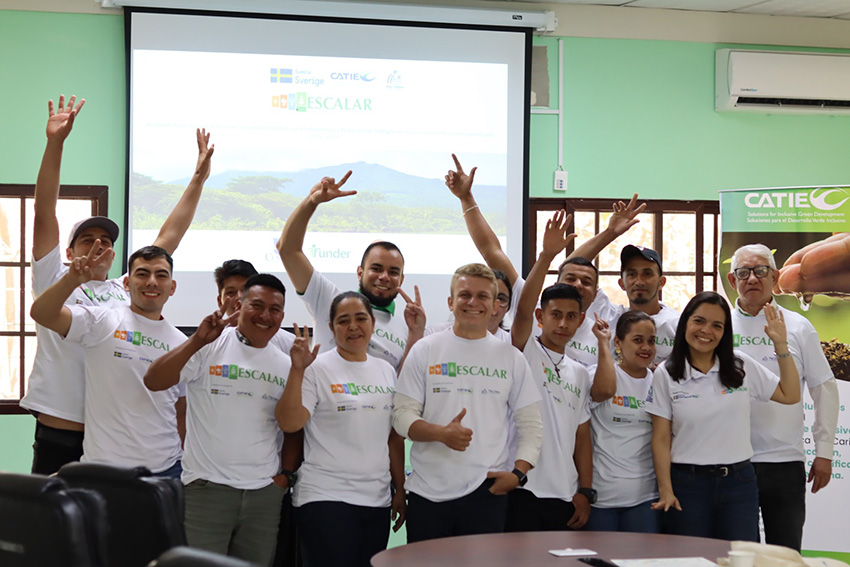
The initiative aims to support the development of rural enterprises that offer innovative solutions to tackle climate change. These businesses will be led by young people aged 18 to 29 who reside in the municipalities that are part of the Central American Dry Corridor in the Trifinio.
The call is implemented in partnership with the University Center of the East of the University of San Carlos (CUNORI), Guatemala, the Foundation for Rural Business Development (FUNDER) in Honduras, and the Center for Development of Micro and Small Enterprise CDMYPE – UNICAES, of the Catholic University of El Salvador.
This is the second call of its kind to be held within the framework of the ESCALAR project: Scaling Climate Adaptation Solutions for Resilience and Migration Reduction in the Central American Dry Corridor.
The call is open to ventures in areas and technologies such as coffee, basic grains, livestock, bioinputs, water harvesting, clonal coffee gardens, agri-tech, agroforestry nurseries, and silvopastoral practices.
Applicants will have the following benefits:
- Free training in entrepreneurship and agricultural innovations for climate change adaptation.
- Learning to formulate business proposals.
- The opportunity to receive non-repayable seed capital ranging from USD 3,000 to a maximum of USD 4,000.
- Receiving mentorship and specialized advice to start and/or improve the operation of their businesses.
The main requirements to apply are:
- Reside in the municipalities of Esquipulas, Chiquimula, Concepción Las Minas, Olopa, Agua Blanca, Santa Catarina Mita, and Asunción Mita (Guatemala). Copán Ruinas, Santa Rita, La Labor, Sinuapa, Sensenti, Lucerna, Concepción, Santa Fe, San Marcos de Ocotepeque, and Fraternidad (Honduras). Candelaria de la Frontera, Metapán, Santiago de la Frontera, San Antonio Pajonal, and La Palma (El Salvador).
- Be between 18 and 29 years of age.
- Have a business proposal linked to coffee, basic grains, livestock, bioinputs, water harvesting, clonal coffee gardens, agri-tech, agroforestry nurseries, and silvopastoral practices.
Those interested must register online and participate in business proposal formulation training workshops, which will give them the necessary tools to present their projects effectively.
Ricardo Padrón, an entrepreneurship and innovation specialist at CATIE and the ESCALAR project, detailed that projects that are sustainable, linked to agricultural innovations for climate change adaptation, and promote job creation with an emphasis on youth, will be prioritized in order to generate a positive social and environmental impact.
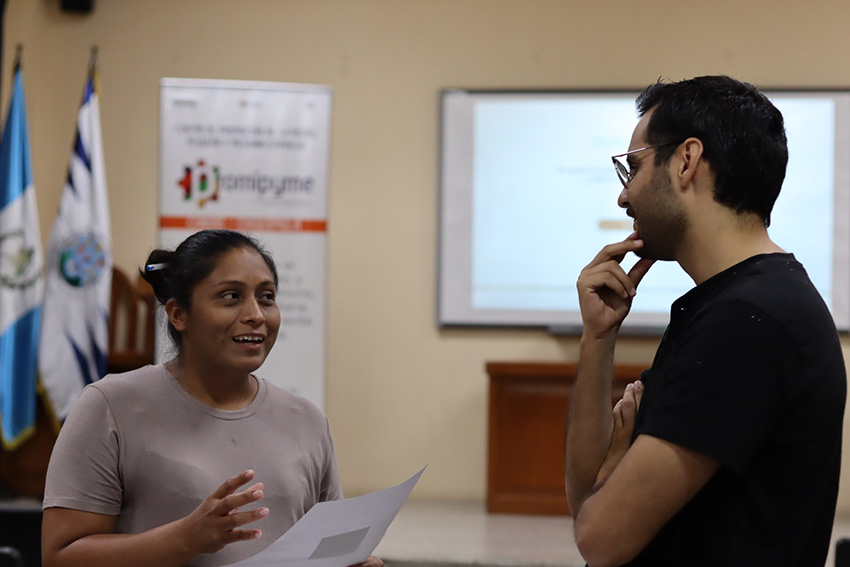
Selected individuals will have access to seed capital to start or strengthen their ventures. In addition, they will receive specialized mentorship, training in key areas such as business models, finance, and marketing, as well as access to a regional business opportunity network. This comprehensive support aims to ensure not only the startup but also the long-term sustainability of the projects.
For this call, there is a non-repayable seed capital fund of USD 72,000, and it is expected to benefit at least 22 youth-led ventures.
This call represents an excellent opportunity for the youth of the Central American Dry Corridor, in the Trifinio, to transform their ideas into sustainable businesses that contribute to climate change adaptation and rural development in the region.
For more information and to register, visit the official ESCALAR page..
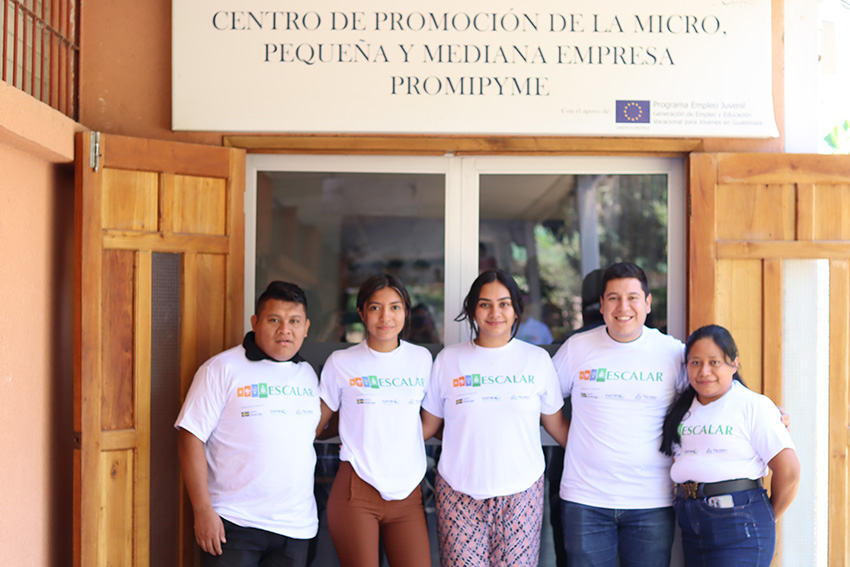
A Tangible Impact
The impact of the first ESCALAR call has been significant, training 149 young people and funding 18 ventures that have contributed to the sustainable development of the region. Investments focused on improving productive infrastructure, acquiring machinery, and specialized raw materials.
"These projects are making a tangible difference in the production of improved forages, bioinputs, and the promotion of agroforestry systems," said Amílcar Aguilar, field coordinator of the ESCALAR project.
"Beyond initial support, the ESCALAR project envisages follow-up strategies and linkage with local, financial, and rural development partners to strengthen enterprises in the long term. Business events, training sessions, and meetings are organized to promote regional integration and the opening of new market and financing opportunities," said Leida Mercado, coordinator of the ESCALAR project.
The ultimate goal of ESCALAR is to strengthen livelihoods and develop more climate-resilient production systems through the implementation of Agricultural Innovations for Climate Adaptation.
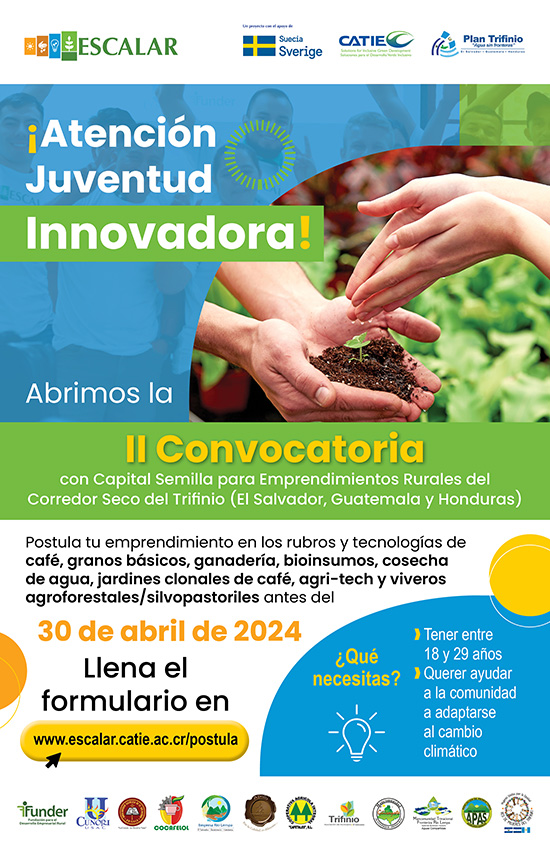
More information:
Ricardo Padrón
Innovation and Entrepreneurship Specialist
Forests and Biodiversity in Productive Landscapes Unit/Activa-CATIE
CATIE
ricardo.padron@catie.ac.cr
Laura Rodríguez
Agribusiness and Incubation Specialist
Unit for Environmental Economics and Sustainable Agribusiness (UEAAS/EfD)
CATIE
laura.rodriguez@catie.ac.cr
Written by:
Karla Salazar Leiva
Communicator
Communications and Marketing Office
CATIE
karla.salazar@catie.ac.cr

